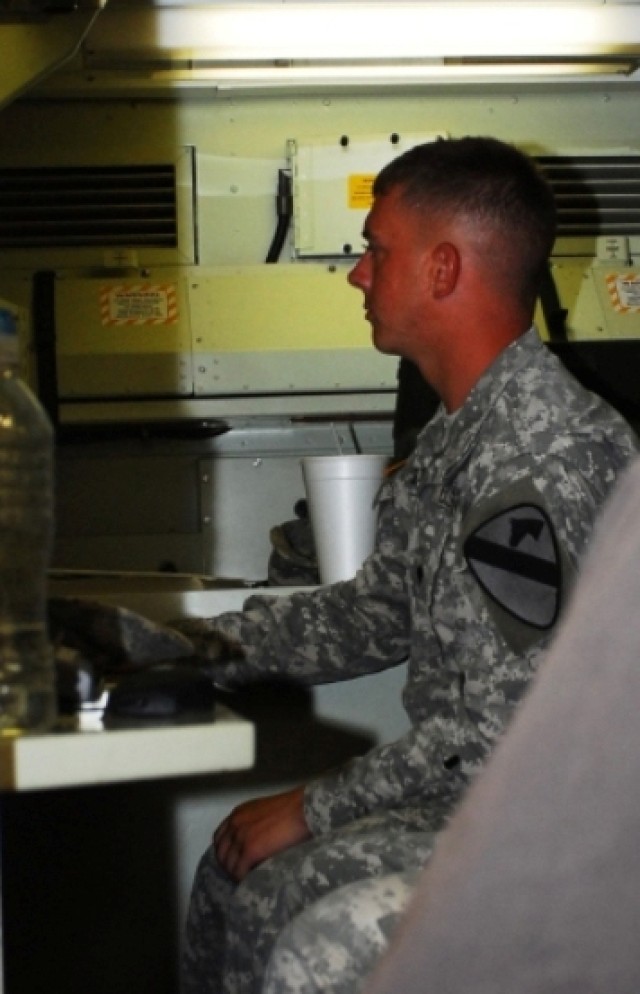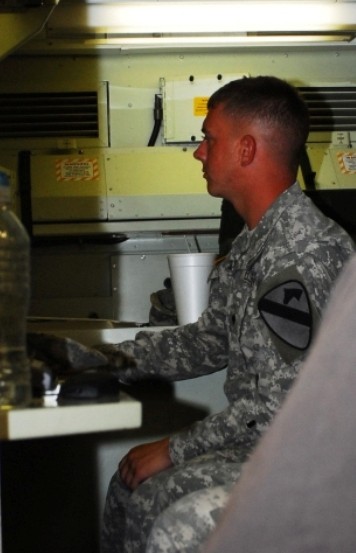
FORT HOOD, Texas- Soldiers from Headquarters and Headquarters Battery, 3rd Battalion, 82nd Field Artillery Regiment, 2nd Brigade Combat Team, 1st Cavalry Division, were introduced to radar and software upgrades at their battalion's motor pool, here, Aug. 3.
The instruction, part of a three-phase, 31 day equipment training exercise, allowed Soldiers an insight to the upgraded Q37 and older Q36 radars, as well as using the new software for simulations, said Warrant Officer Robert McDonald, a target acquisition platoon leader.
The decision to upgrade the Q37 radar comes from a need for a modernized model.
"The importance to (the Q37) is reliability and maintainability," said Staff Sgt. Billy Jones, a radar section leader.
The radar not only comes with a redesigned cooling system and power module, but it can continue to operate while part of it undergoes maintenance, said Jones.
Part of that redesign includes new software that upgrades the Q37 and Q36 radar operation centers, said McDonald.
"[The Army] upgraded a lot of stuff in it, now we have a lot of the things for the software that's compatible with the actual hardware," explained McDonald.
According to Sgt. Nickolus Belmonte, a section chief, the software includes a user-friendly operating system, simplified controls and less maintenance that cuts trouble shooting time to less than one hour.
Some Soldiers, such as Spc. James Zehr, a radar operator, found the equipment and software upgrades key to their occupation.
"I think it's going to work a lot better," said Zehr, "I have learned a lot of stuff. I wasn't very efficient with it before. I feel very comfortable now."
Another upgrade to the radars is already in the works, said McDonald.

Social Sharing